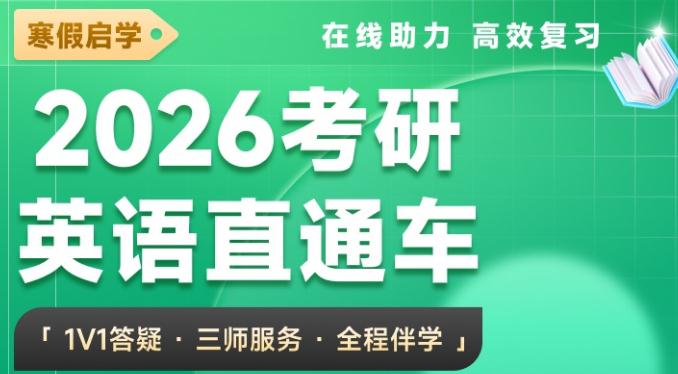1998-2022 ChinaKaoyan.com Network Studio. All Rights Reserved. 滬ICP備12018245號
北京外國語大學2014年碩士研究生入學考試英語同聲傳譯專業試題
北京外國語大學2014年碩士研究生入學考試試題
招生專業:英語同聲傳譯科目名稱: 英漢互譯
(考試時間3小時,滿分150分,全部寫在答題紙上,答在試題頁上無效)
一、將下列段落譯為漢語(25分)
In the pre-modern era, political, economic, and social life was governed by a dense web of interlocking relationships inherited from the past and sanctified by religion. Limited personal freedom and material benefits existed alongside a mostly unquestioned social solidarity. Traditional local orders began to erode with the rise of capitalism in the eighteenth and nineteenth centuries, as the increasing prevalence and dominance of market relationships broke down existing hierarchies. The shift produced economic and social dynamism, an increase in material benefits and personal freedoms, and a decrease in communal feeling. As this process continued, the first modern political ideology, classical liberalism, emerged to celebrate and justify it.
Liberalism stressed the importance of the rule of law, limited government, and free commercial transactions. It highlighted the manifold rewards of moving to a world dominated by markets rather than traditional communities, a shift the economic historian Karl Polanyi would call “the great transformation.” But along with the gains came losses as well—of a sense of place, of social and psychological stability, of traditional bulwarks against life’s vicissitudes.
Left to itself, capitalism produced long-term aggregate benefits along with great volatility and inequality. This combination resulted in what Polanyi called a “double movement,” a progressive expansion of both market society and reactions against it. (211)
二、將下列短文譯為漢語(50分)
The European Union was established with a legal treaty and is founded on the principle of the rule of law. This concept centers on a set of rules governing all society’s processes and interactions and being above all society’s institutions and organizations. The rules or laws set the moral and ethical standards by which the behaviour of members of society and organizations are judged. For the rule of law and thereby civil society to flourish, it requires the citizens of a country to respect and trust legal processes, and the law to be applied in a consistent way to all. This gives people a feeling of inclusiveness and optimism about their future. The European Union’s Governance for Equitable Development (GED) project, implemented by the United Nations Development Programme (UNDP) from 2007 to 2012, has assisted China to benefit from knowledge of Europe’s developed legal system and civil society through technical exchange, research and knowledge sharing.
As people’s incomes grow and material living standards rise, their expectations about the quality of life, participation in civil society, protection of property and individual rights increase. Meeting these expectations for a better life in a rapidly urbanizing society with a still significant rural population is one of the key challenges facing China today. This is where the GED project has supported China in moving to a more equitable, inclusive and vibrant civil society, based on the rule of law.
The project has worked with three key Chinese agencies, the National Peoples’ Congress, the Supreme People’s Court and the Ministry of Civil Affairs on topics ranging from law drafting and court efficiency to registration of civil society organizations. The project has produced remarkable results over five years, leading to an improved environment for civil society to flourish in China, increased citizen participation in law making, reduced barriers to seeking justice, increased transparency and efficiency of selected courts and progress in the consistency of court decisions. (321)
三、將下列段落譯為英語(25分)
當今世界,和平、發展、合作是時代潮流更加強勁,但同時人類社會也面臨著前所未有的挑戰。歷史罕見的國際金融危機重創了世界經濟,其深層次影響仍在發酵,世界經濟復蘇進程曲折緩慢。氣候變化、資源環境、糧食安全、能源危機、公共衛生、貧富差距、重大災害、網絡安全、恐怖主義等全球性問題更加突出,傳統與非傳統安全威脅相互交織。國際經濟政治秩序還存在著不公正、不合理的問題,世界范圍內市場、資源、人才、技術、標準等方面的不公平競爭遠未消除。(211字)
四、將下列短文譯為英語(50分)
沒有作業多好,這是無數小學生的夢想。但現實卻是那么無奈,總有大堆的書要讀,總有大堆的作業要完成。然而在新西蘭,這個夢想卻可以變為現實。
一個偶然的機會,我參觀了新西蘭的一所小學。最讓我驚愕的是,新西蘭所有低年級的學生都沒有家庭作業,也沒有教育部統一制定的課本。小學生通常喜歡聽故事,于是這里的老師就以故事書為課本。有時,老師也會布置一兩道家庭作業題,但都是些手工制作。比如,讓學生利用廢棄的報紙折紙花,用喝過的飲料瓶做筆筒等。然后評比出最漂亮的作品、最有創意的作品,并為優勝者頒發獎狀。
有人覺得,這樣的教育方式,難以讓孩子學到知識,難以應對以后的激烈競爭。可是,新西蘭教育專家卻認為,知識容易彌補,而快樂成長不容替代。這樣的教育會讓孩子人格更為健全,掌握知識更加主動,也能成為社會需要的出色人才。(347字)
來源未注明“中國考研網\考研信息網”的資訊、文章等均為轉載,本網站轉載出于傳遞更多信息之目的,并不意味著贊同其觀點或證實其內容的真實性,如涉及版權問題,請聯系本站管理員予以更改或刪除。如其他媒體、網站或個人從本網站下載使用,必須保留本網站注明的"稿件來源",并自負版權等法律責任。
來源注明“中國考研網”的文章,若需轉載請聯系管理員獲得相應許可。
聯系方式:chinakaoyankefu@163.com
- 2026考研英語全程班 6班
- 權威高配師資親授技巧,教研千錘百煉科學提分。直錄播課相結合精講互動二合一,專業團隊精細化作文批改。講練結合,隨學隨練穩步提升。支持試聽~
- 主講團隊:王江濤、譚劍波、董仲蠡、許聰杰、陳志超、潘赟、鄭艷彤、易熙人

掃碼關注
了解考研最新消息












